This is a six part travelogue series exploring a section of Yunnan Province in China, from the autonomous prefecture of Xishuangbanna (西双版纳) to the remote village of Manwa Laozhai (曼佤老寨) and finally to the ancient tea forests of Jingmai (景迈).
- Xishuangbanna
- Village of Manwa Laozhai
- Mountains of Manwa Laozhai
- Canyons of Manwa Laozhi
- Ancient tea forests of Jingmai
- The Bulang People
Kammy and I have been exploring a segment of the Yunnan Province in China and after a couple of nights in the village of Manwa Laozhai (曼佤老寨), we arrive at the ancient tea forests of Jingmai (景迈). We check in to our hotel just in time for a spectacular sunset. The ethnic groups here have been cultivating tea for over 2,000 years! The oldest living tea tree here is around 800 years! Our friend A-Yun (阿云, his moniker meaning cloud) knows one of the plantation owners and that family is our host during our stay.
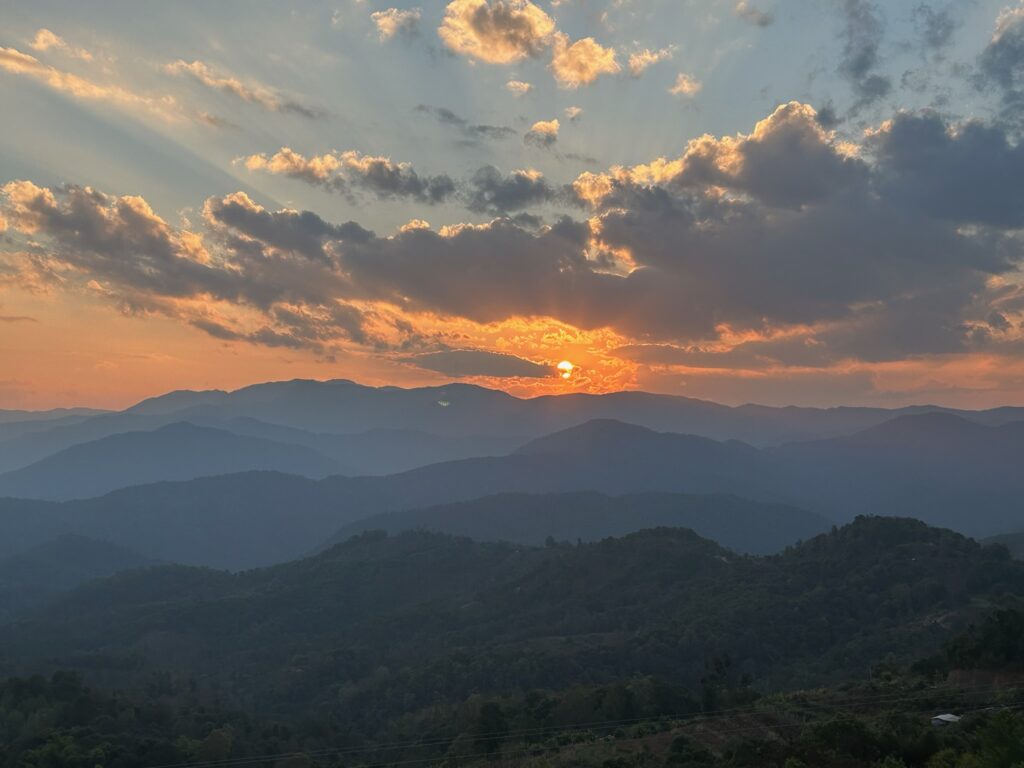
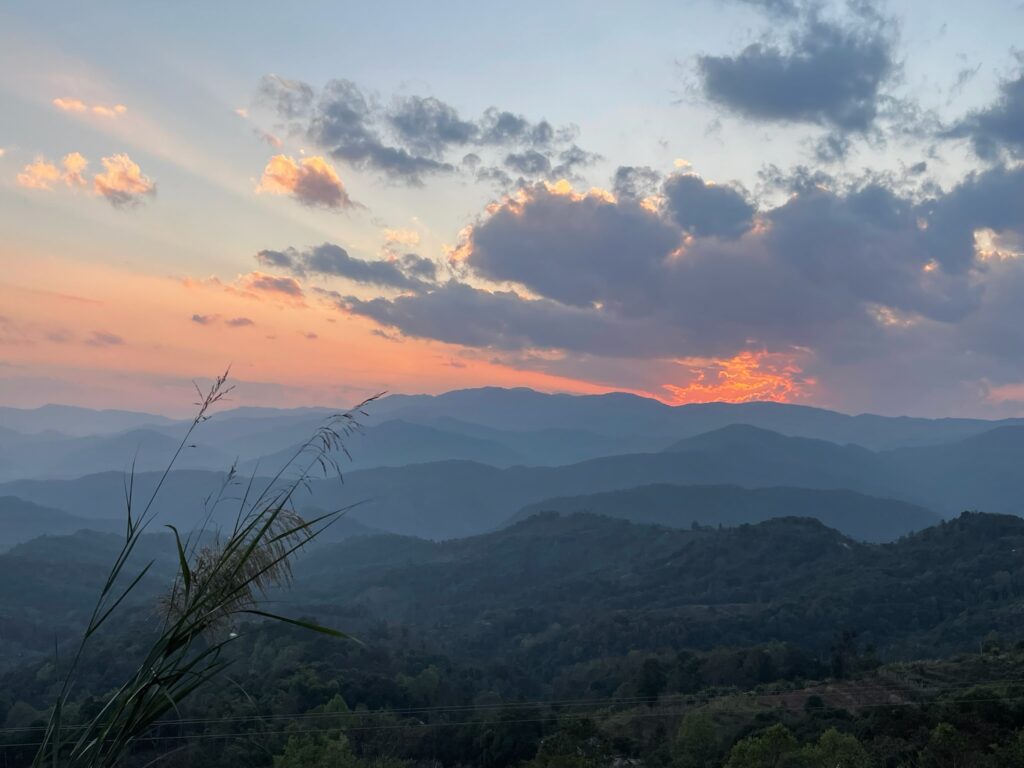
Yunnan: Ancient Tea Forests of Jingmai (景迈)
After the sunset, we grab dinner with the host’s family. Turns out their 25 year old son took a 3 year course in college with a tea equivalent of viticulture– history of tea, how to grow, how to brew, how to taste, etc. He’s back now helping with the family business. We chat over dinner and then get invited to their home to taste their tea, first green and then black.
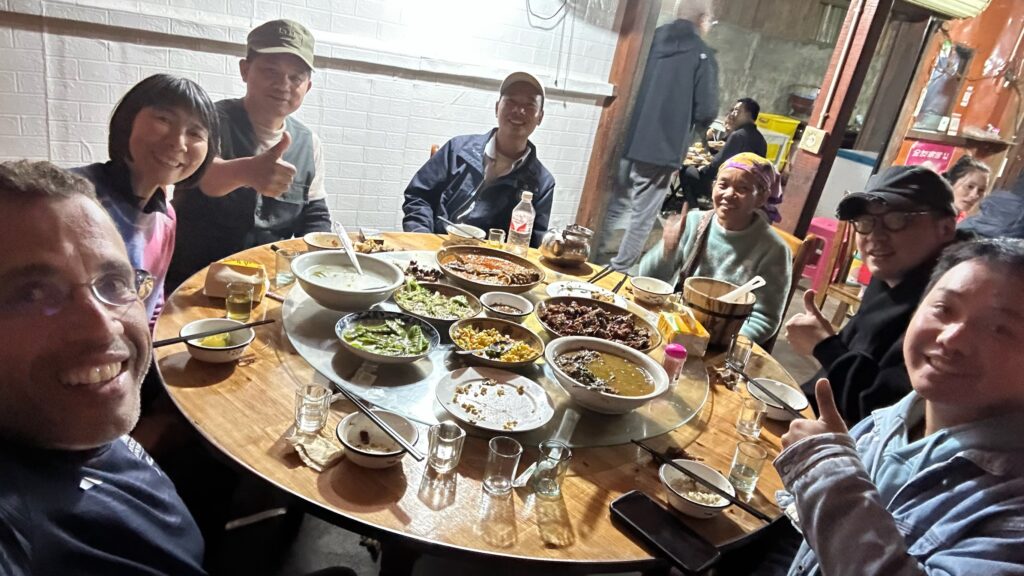
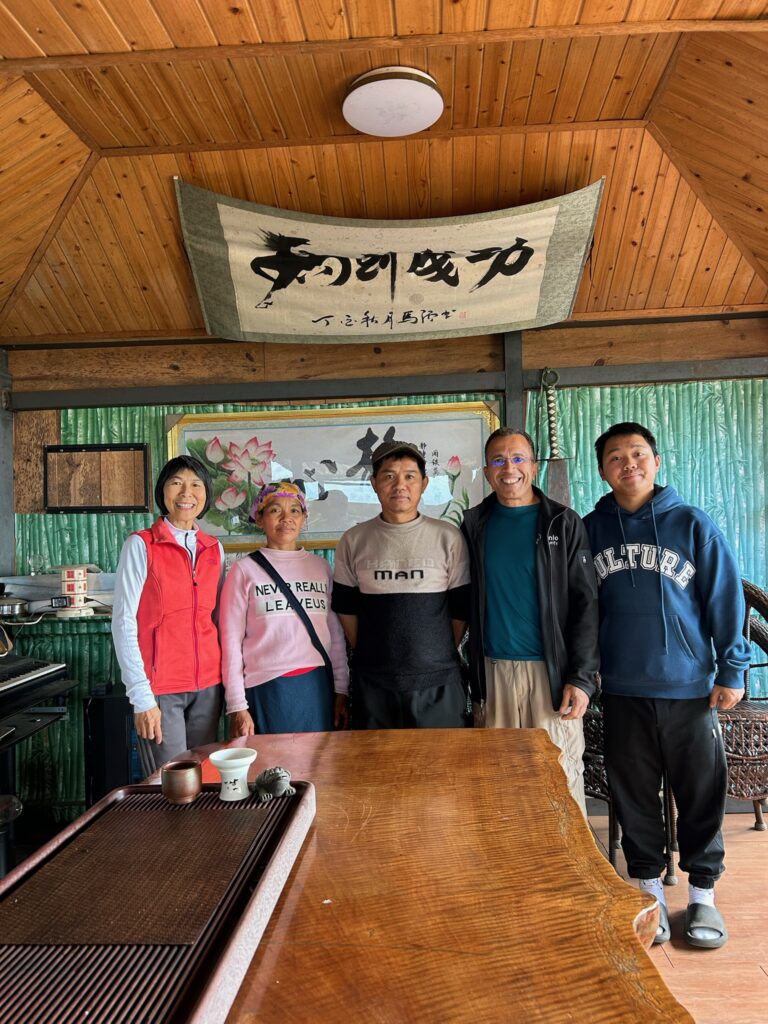
I have so many questions and with Kammy’s help in translating, he explains how they harvest the tree, brew times, taste testing, green vs. black tea, fermented vs. roasted, etc. I feel like I learned a ton in just a short amount of time. Though, all the caffeine that late in the day, didn’t help with my sleep that night.
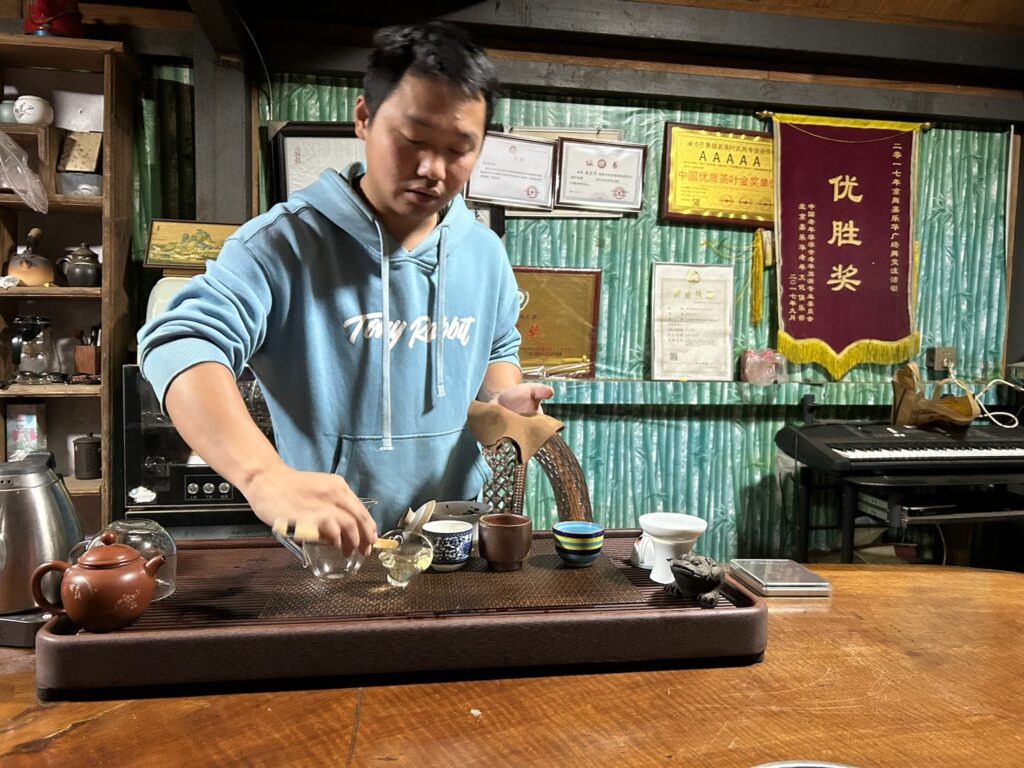

One of the highlights of being up in these mountain is to witness the cloud sea (云海) and we were lucky the next morning. We wake up to a sea of clouds rolling across the ridges. The layered shades of the mountains is almost like a Chinese painting and far back was a ridge line across the Burma border!
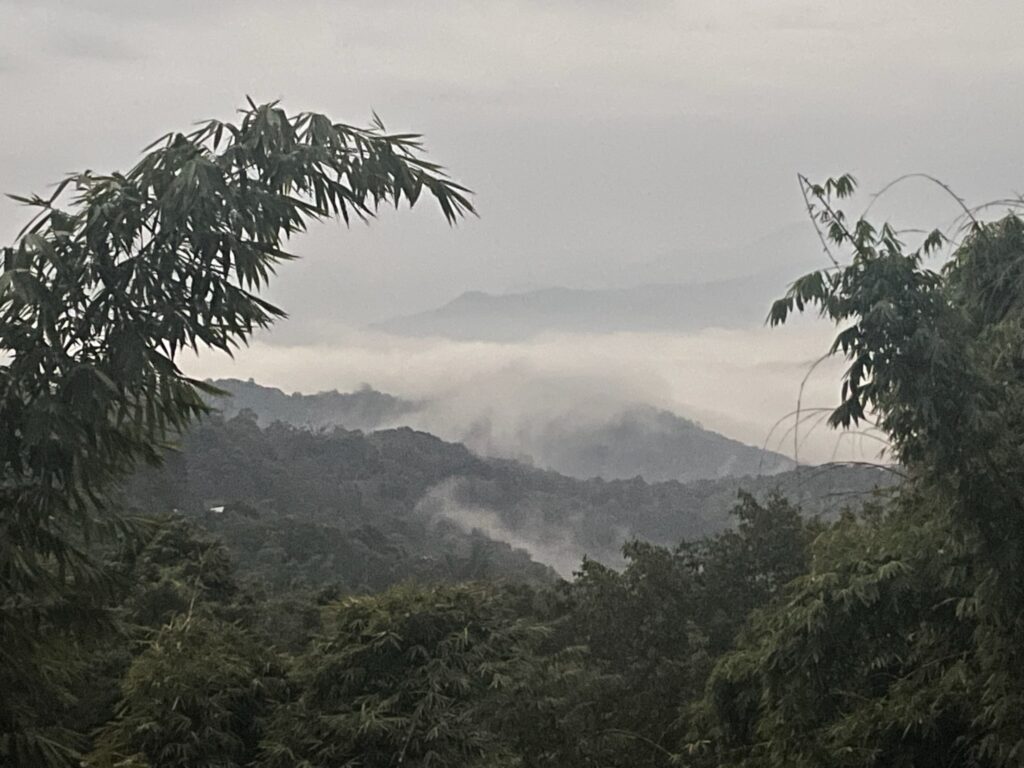
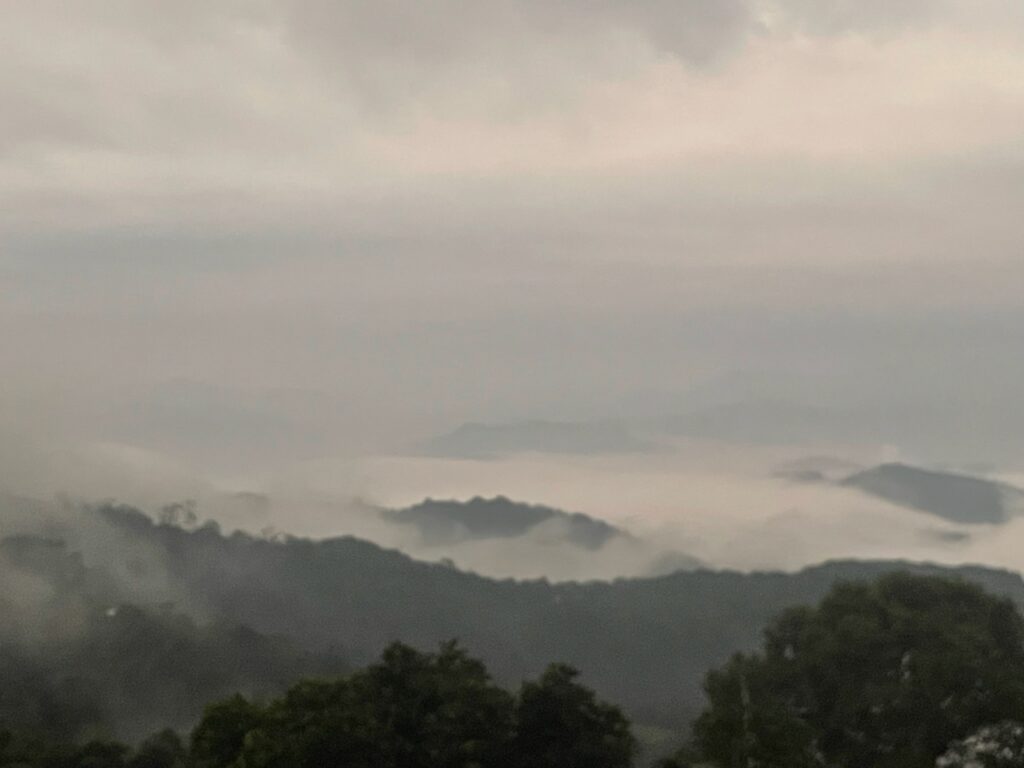
Our breakfast is noodles in a warm peanut soup, with veggies and additional condiments – the Sichuan pepper corn & spices makes my mouth numb! We then stroll up to the mountain top walking through the various plantations. The claim-to-fame of the Pu’er tea that’s grown here is that the tea is planted under the canopy of endemic trees. The shade, the undergrowth, insects and the whole ecosystem is what’s supposed to make this tea very special!
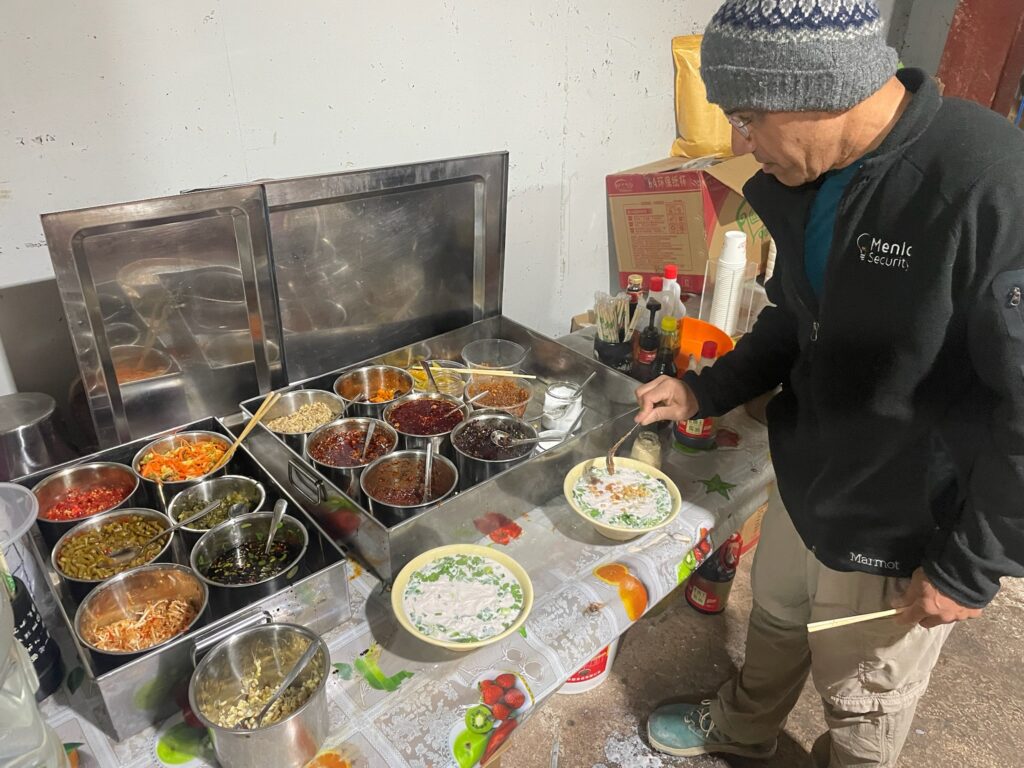
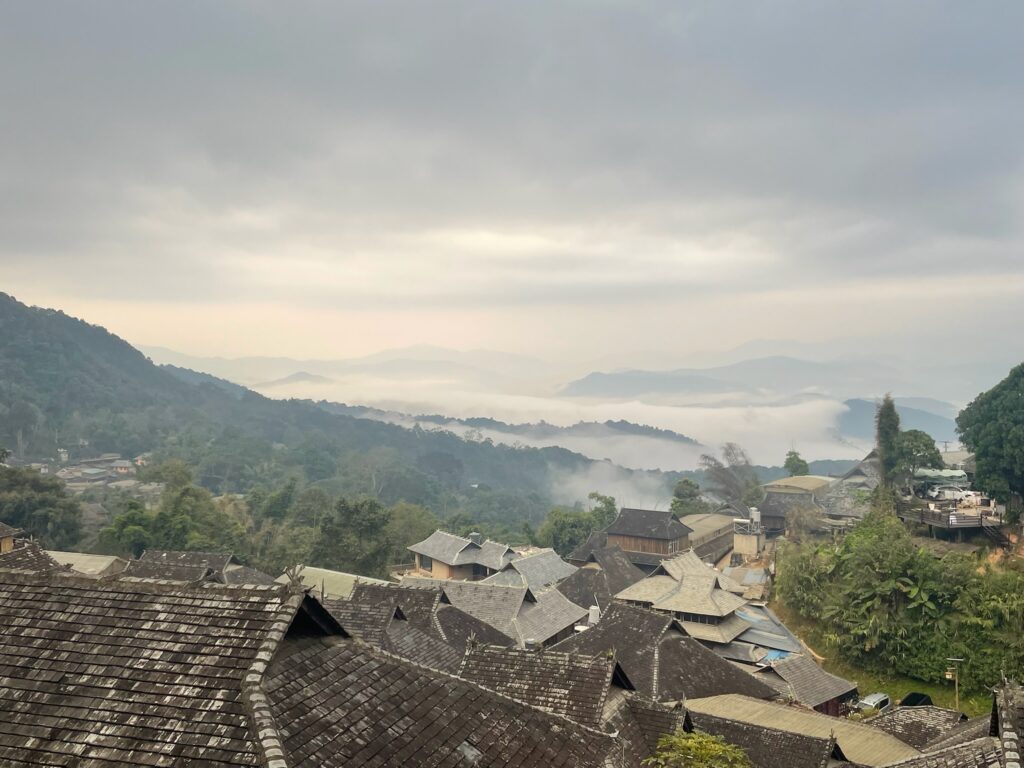
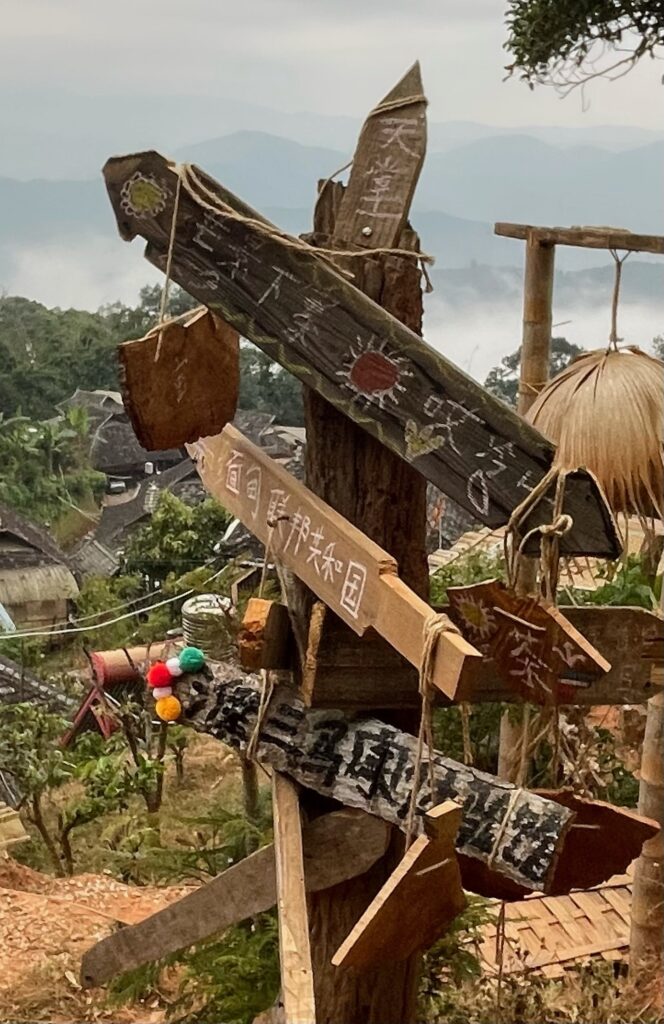
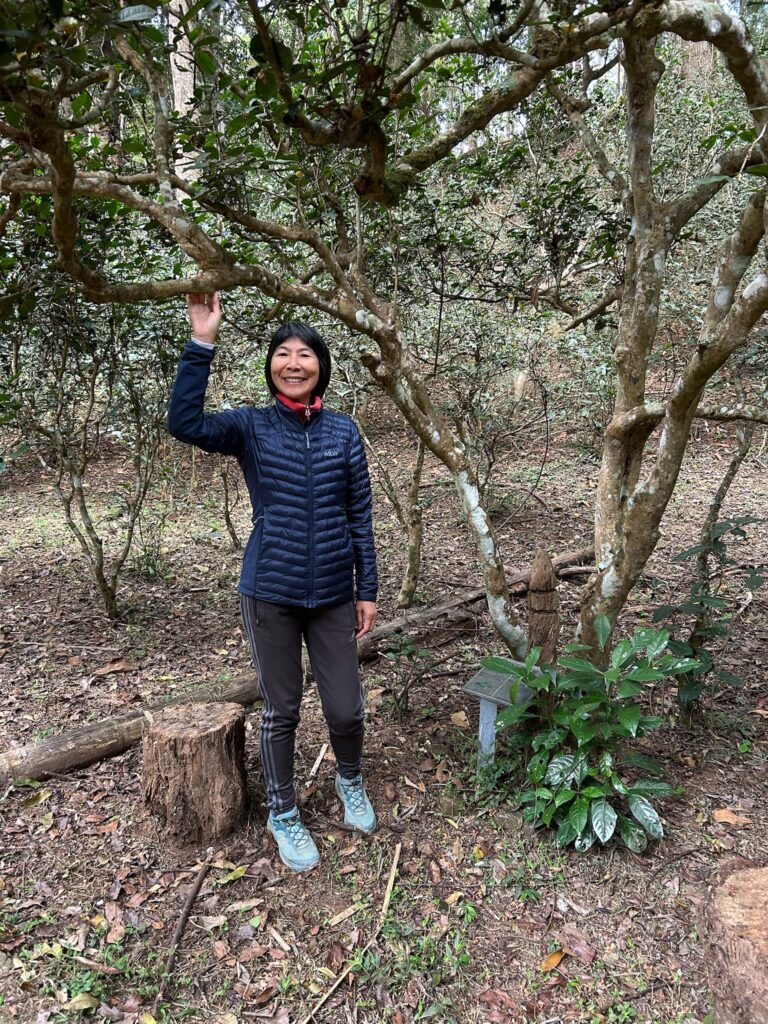
Our host takes us to the king tea tree (800 years old!) and we slowly make our way back to the village, walking past the princess fig tree (the buttress roots apparently look like the princess’ hair!).
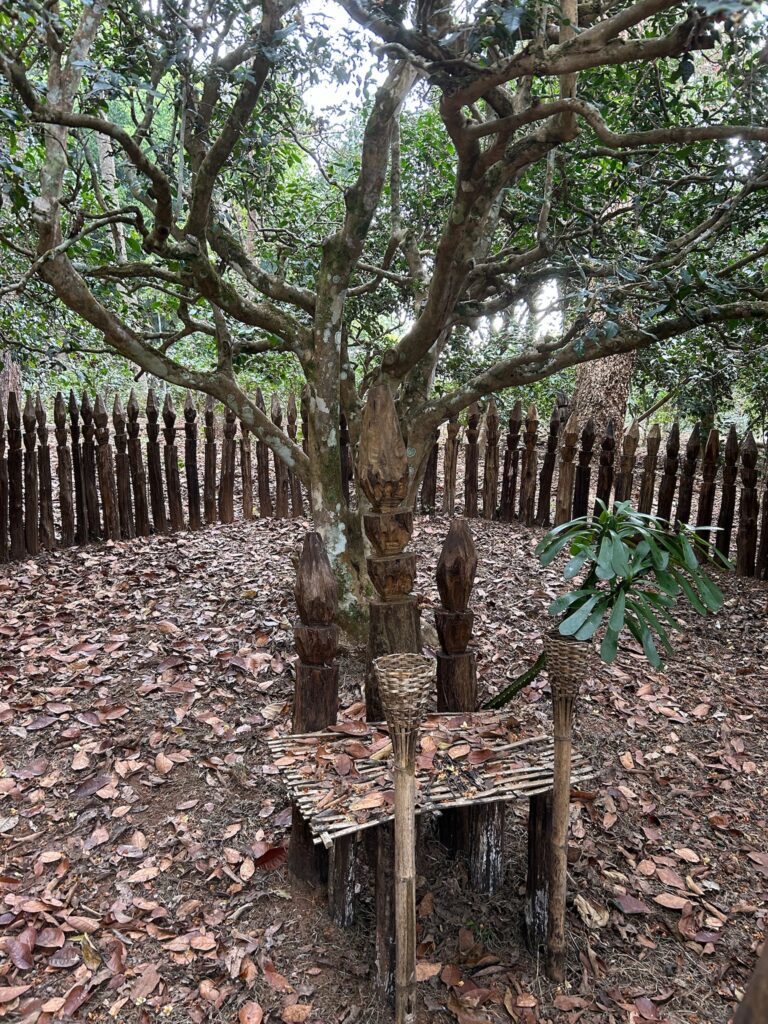
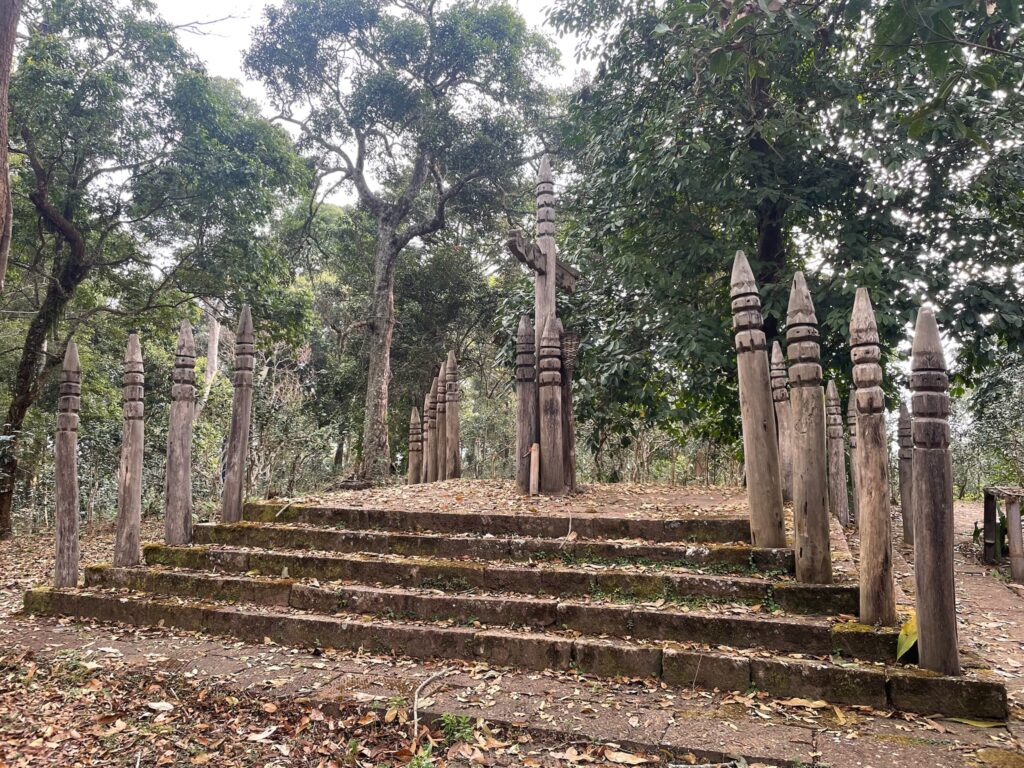
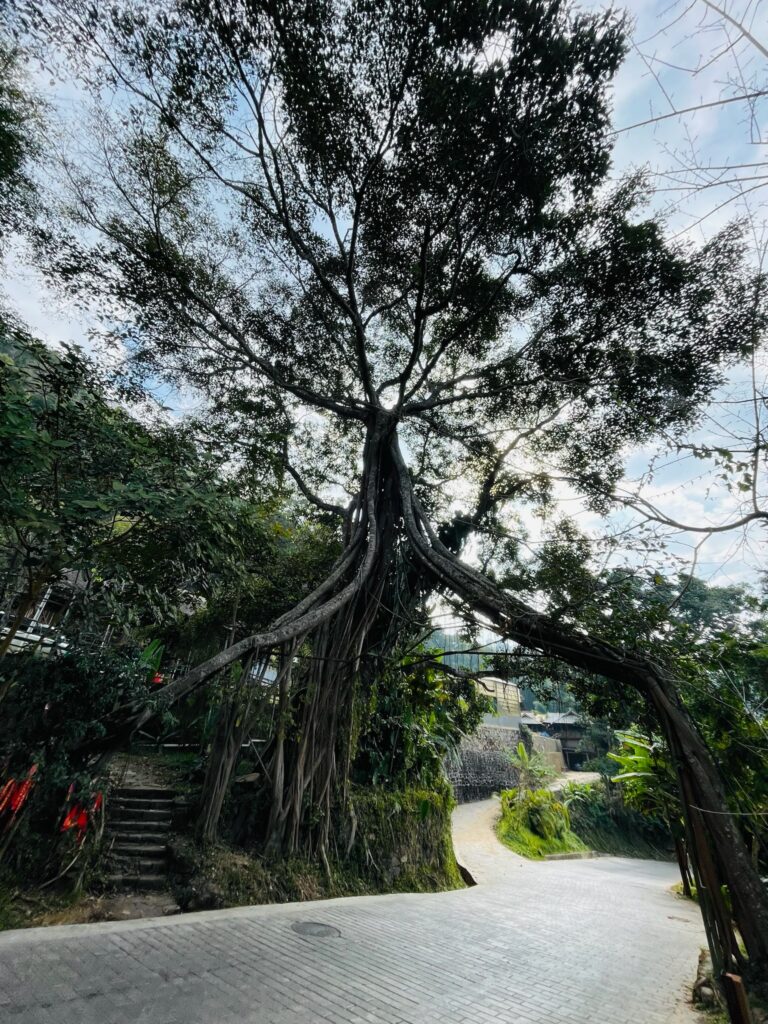
A quick lunch and it’s time to wrap up this adventure. We drive down on the massage road (按摩路) – hand paved stone road that’s quite bumpy – and make our way back to Xishuangbanna to catch our flight next morning. We briefly stop by another “ancient” village, but this (to me), is a far cry from what we’ve already seen in Manwa Laozhai.
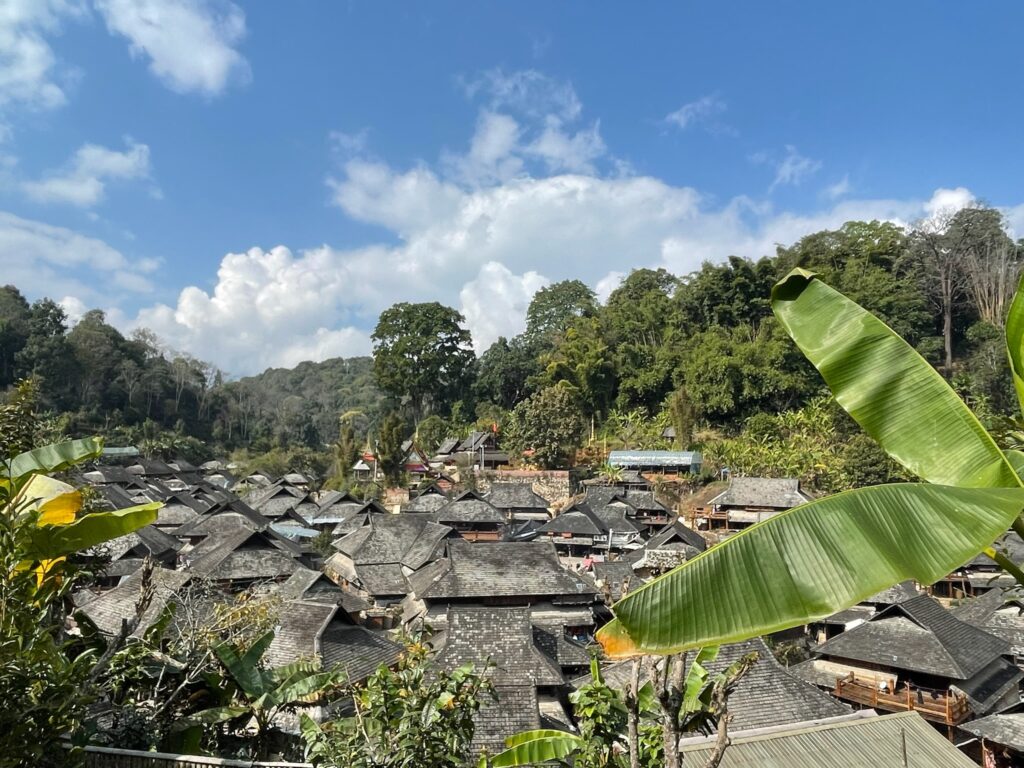
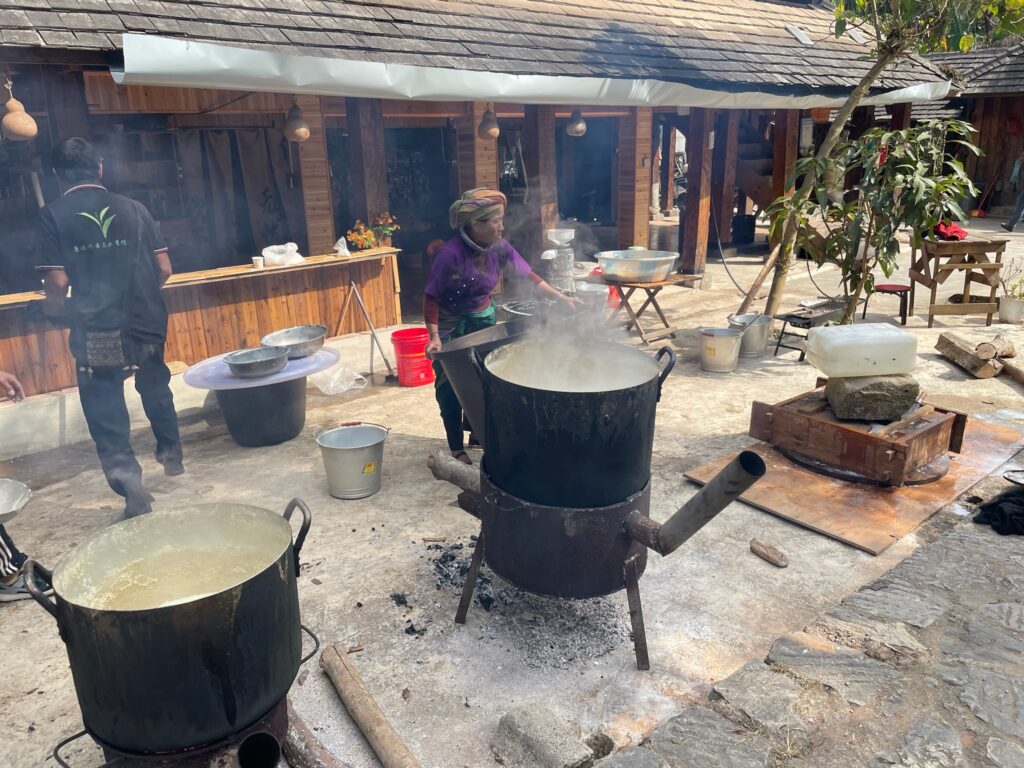
As we walk around the city of Jinhong (景洪市), I’m overwhelmed by the loudness of the city. The river walk has speakers blasting random announcements, a dude singing loud, cars honking, people in a hurry and curt – have to find a quiet place to reorient myself to this new reality. I miss the bird sounds (鸟声), water sounds (水声) and wind sounds (风声) and most of all being in the mountains.
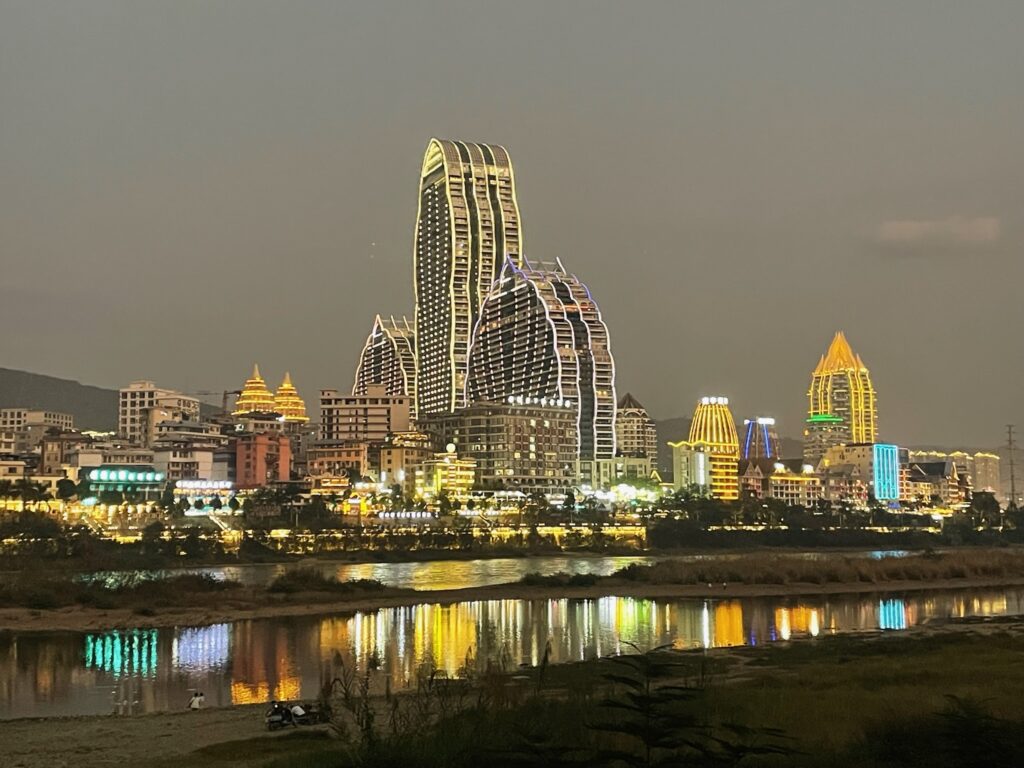
What started off as a simple blog has ballooned into a six part travelogue series. I didn’t realize how “dense” this trip was. We saw, learned and appreciated so much. It was like visiting a time capsule from simpler times. As I’m finishing the last of these blogs, there’s a tinge of sadness, parting of friends and a reluctance to leave these beautiful mountains. Maybe one day we’ll come back here, or so I hope and wish.
This is a six part travelogue series exploring a section of Yunnan Province in China, from the autonomous prefecture of Xishuangbanna (西双版纳) to the remote village of Manwa Laozhai (曼佤老寨) and finally to the ancient tea forests of Jingmai (景迈).
- Xishuangbanna
- Village of Manwa Laozhai
- Mountains of Manwa Laozhai
- Canyons of Manwa Laozhi
- Ancient tea forests of Jingmai
- The Bulang People
Absolutely N.O. spam. No more than two emails each week. Learn about injury-free running, race reports, new trail routes, awesome recipes and amazing interviews.